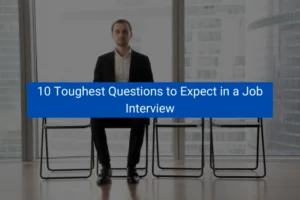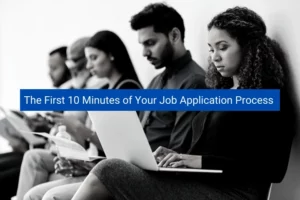In this session, we'll go over the many sorts of interviewing procedures so you can figure out which one is best for your firm and the stage of hiring. It's not a game of drawing straws to determine the best-interviewing strategy at the correct time. Continue reading to learn more about the importance of each interviewing method.

An interview is one of the most important opportunities for a firm to learn more about a possible candidate for a job opening. Not only does it have the capacity to grasp an applicant's skills, but also their personality, problem-solving skills, and general demeanor, to mention a few. Being an interviewer is a difficult job; not only will they be asking and answering questions frequently, but they will also be scrutinizing each and every application in order to discover the best candidate for the job. After you've screened your job applicants, the following stage is to prepare for an interview. Recruiters can now choose from a variety of methods for conducting interviews. Aside from personal interviews, you might conduct phone, video, or group interviews. Incorporating many interviewing strategies into your employment process is ideal. This aids the interviewers in identifying the best candidate for the job.
5 Main Interviewing Method
1. Telephone Interview
Why is it that this is usually the first step in the interview process? Because this interviewing method may be set up in as little as 15 minutes, it saves time in the hiring process for both the candidate and the recruiter. The recruiter can create a questionnaire to learn more about the applicant and determine whether or not they are qualified to advance to the next step of the hiring process.
7 Tips for Successful Phone Interviews
You can evaluate the candidate's communication skills, confidence, work ethics, motivation, and critical thinking abilities at this point. You can also see if the applicant has a high attrition rate if employed. Questions like what skills they excel in, how their day-to-day looks like, why they are looking for a new job, and what they expect from you as a firm are all good ones to ask.
2. Video Interview
Live or recorded video interviews are both possible. When you don't have time to interview the candidate in person or want to assess the applicant's body language, you use this interviewing strategy. When you wish to read a candidate's facial expression and establish their genuineness, this method is reliable.
How to Prepare for Video Interview?
If you can't chat live or have other things to do at the same time, a pre-recorded video interview comes in handy. Live video interviews, on the other hand, are extremely effective for evaluating a candidate for a managing or executive post. Their facial expressions, body language, and charm are all seen here.
The only difference between live video interviews and typical personal interviews is that you conduct them remotely using some web programs. Employers do video interviews using a variety of apps. To name a few, we have Skype, Zoom, Slack, Google Meet, Google Hangouts, Facebook Messenger, and FaceTime. In terms of preparation time and travel time, it would be beneficial to both sides (for the applicant).
In a pre-recorded video interview, often known as a one-way interview, the candidate answers the interviewer's questions and then reviews them. After that, a link to the video recording will be emailed to the company email, or a copy of the video can be forwarded as an attachment.
3. Group Interview
If you only have a few positions to fill and a large number of applicants, the group interview method is advised. It's when the interviewer arranges for a single interview with two or more candidates to fill a single vacancy. Employers who are searching for someone with people skills, public speaking skills, a collaborative approach, and a team player typically use this.
It is recommended that the interviewer prepare both group and individual questions. This will allow you to assess a candidate's ability to express his opinions, respect others while speaking, and have soft skills when disagreeing with another's point of view. Group interviews also save time and reduce turnover, resulting in cost savings for companies. As a result, this method is used as the second phase in their hiring process.
10 Interview Mistakes to Avoid
4. Panel Interview
Unlike a group interview, where the interviewer conducts an interview with more than two applicants, a panel interview requires an applicant to respond to questions from a group of executives. This interviewing technique is frequently utilized to fill managerial and executive roles. This is utilized when there are multiple points of view to consider and the position to fill is crucial to the company's performance. The chairperson will be one of the C-suite executives, and the others will ask their queries.
The candidate's ability to handle pressure and stress, as well as their level of confidence and communication abilities are all assessed during panel interviews. Despite the fact that this form of interview will take more time away from other critical jobs within the organization, it is a definite approach to locate the appropriate person to fill a position that will benefit everyone.
Successful Interview Techniques
5. Individual Interview
As the final step in the employment process, the HR Manager or Hiring Manager typically conducts this interviewing style. This face-to-face interview helps the Hiring Manager to assess whether this candidate profile fits the company's culture and, in some cases, to determine whether they and the potential employee have chemistry.
This is also the time when the candidate presents himself and sells himself. As a result, it is recommended that the interviewer be more prepared when conducting this interview in order to determine whether the candidate is qualified to work for the organization. Although this method takes time, there is no other approach that compares to having a personal touch during an interview.
When it comes to building a recruiting process for your firm, understanding the many types of interview methods and your organization's demands is critical. Determining the number of stages in your hiring process also necessitates deciding who should conduct each step's interview. Your collection of questions will be crucial in determining who of the many applicants is qualified to fill the post.
For Human Resource, Payroll and many more HR Services, visit our website https://lingueeglobal.com/



